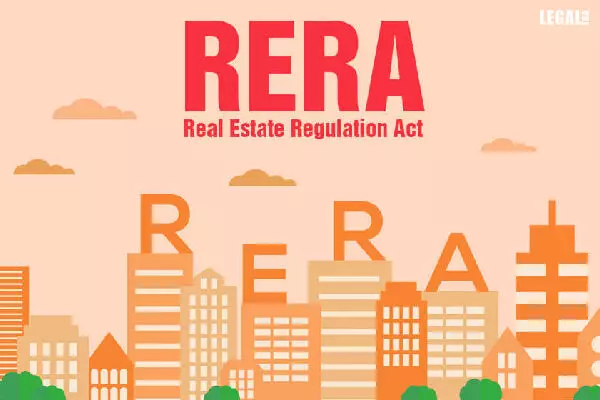- Home
- News
- Articles+
- Aerospace
- Artificial Intelligence
- Agriculture
- Alternate Dispute Resolution
- Arbitration & Mediation
- Banking and Finance
- Bankruptcy
- Book Review
- Bribery & Corruption
- Commercial Litigation
- Competition Law
- Conference Reports
- Consumer Products
- Contract
- Corporate Governance
- Corporate Law
- Covid-19
- Cryptocurrency
- Cybersecurity
- Data Protection
- Defence
- Digital Economy
- E-commerce
- Employment Law
- Energy and Natural Resources
- Entertainment and Sports Law
- Environmental Law
- Environmental, Social, and Governance
- Foreign Direct Investment
- Food and Beverage
- Gaming
- Health Care
- IBC Diaries
- In Focus
- Inclusion & Diversity
- Insurance Law
- Intellectual Property
- International Law
- IP & Tech Era
- Know the Law
- Labour Laws
- Law & Policy and Regulation
- Litigation
- Litigation Funding
- Manufacturing
- Mergers & Acquisitions
- NFTs
- Privacy
- Private Equity
- Project Finance
- Real Estate
- Risk and Compliance
- Student Corner
- Take On Board
- Tax
- Technology Media and Telecom
- Tributes
- Viewpoint
- Zoom In
- Law Firms
- In-House
- Rankings
- E-Magazine
- Legal Era TV
- Events
- Middle East
- Africa
- News
- Articles
- Aerospace
- Artificial Intelligence
- Agriculture
- Alternate Dispute Resolution
- Arbitration & Mediation
- Banking and Finance
- Bankruptcy
- Book Review
- Bribery & Corruption
- Commercial Litigation
- Competition Law
- Conference Reports
- Consumer Products
- Contract
- Corporate Governance
- Corporate Law
- Covid-19
- Cryptocurrency
- Cybersecurity
- Data Protection
- Defence
- Digital Economy
- E-commerce
- Employment Law
- Energy and Natural Resources
- Entertainment and Sports Law
- Environmental Law
- Environmental, Social, and Governance
- Foreign Direct Investment
- Food and Beverage
- Gaming
- Health Care
- IBC Diaries
- In Focus
- Inclusion & Diversity
- Insurance Law
- Intellectual Property
- International Law
- IP & Tech Era
- Know the Law
- Labour Laws
- Law & Policy and Regulation
- Litigation
- Litigation Funding
- Manufacturing
- Mergers & Acquisitions
- NFTs
- Privacy
- Private Equity
- Project Finance
- Real Estate
- Risk and Compliance
- Student Corner
- Take On Board
- Tax
- Technology Media and Telecom
- Tributes
- Viewpoint
- Zoom In
- Law Firms
- In-House
- Rankings
- E-Magazine
- Legal Era TV
- Events
- Middle East
- Africa
NCLAT Ruling: RERA Order Doesn't Bypass Threshold For Insolvency Plea By Homebuyers

NCLAT Ruling: RERA Order Doesn't Bypass Threshold For Insolvency Plea By Homebuyers
The National Company Law Appellate Tribunal (NCLAT), with Justice Ashok Bhushan presiding alongside technical members Barun Mitra and Arun Baroka, recently delivered a judgment impacting how aggrieved homebuyers can pursue insolvency proceedings against developers. The case involved Rahul Gyanchandani and three other flat buyers (the Appellants) who had entered into agreements with Parsvnath Landmark Developers Pvt. Ltd. (the Corporate Debtor) in 2007 for four flats in their La Tropicana Khyber Pass Delhi project. When the project failed to meet its completion deadlines, the flat buyers filed complaints under the Real Estate (Regulation and Development) Act (RERA) seeking a refund of their invested amount.
RERA-Delhi ruled in favour of the flat buyers on October 21, 2022, directing Parsvnath to return their invested sum with interest. However, Parsvnath failed to comply with the order. Faced with this continued financial strain, the flat buyers, on August 3, 2023, filed a petition under Section 7 of the Insolvency and Bankruptcy Code (IBC), aiming to initiate a Corporate Insolvency Resolution Process (CIRP) against Parsvnath.
A critical hurdle emerged when the National Company Law Tribunal (NCLT) noted that there were 488 total allotted units in the project, whereas only four allottees, including the Appellants, had filed the insolvency petition. Citing non-compliance with the second proviso to Section 7(1) of the IBC, which mandates a minimum of 100 allottees or 10 per cent of the total to jointly file such a petition, the NCLT rejected their plea on October 17, 2023.
The flat buyers challenged this order before NCLAT. Their argument hinged on the notion that after the RERA order, they morphed into "decree holders," a separate category of financial creditors exempt from the IBC's threshold requirement. They pointed to Section 3(10) of the IBC, which defines a creditor as encompassing a decree holder. Additionally, they argued that under RERA, a person receiving a full refund order ceases to be an allottee.]
The NCLAT bench acknowledged that a decree holder can be a financial creditor under the IBC. However, they clarified that such a decree holder can only file a petition under IBC if they simultaneously qualify as a financial creditor. Since Parsvnath hadn't fulfilled the RERA order, the flat buyers, in the eyes of both IBC and RERA, remained "allottees."
NCLAT further rejected the argument that a RERA order magically transforms an allottee into a decree-holder who bypasses the IBC's threshold requirement. The tribunal decisively stated that flat buyers, irrespective of RERA orders, belong to the same "allottee" category and must comply with the threshold provision under Section 7(1) of the IBC.



